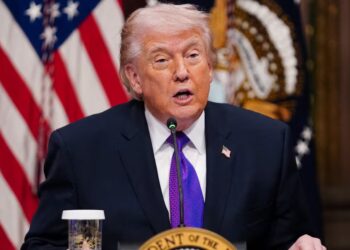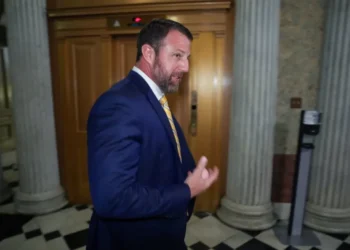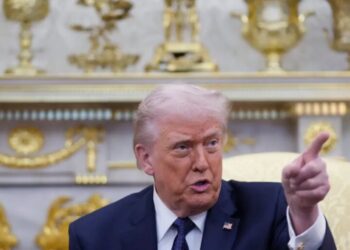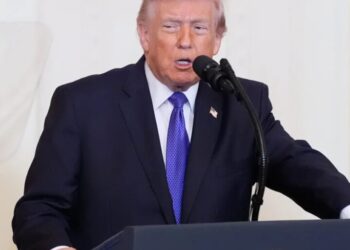Trump, 79, Can’t Stop Posting Images of His Gaudy Ballroom
In the midst of war and the departure of a key Cabinet member, the president hasn’t forgotten about his swankly...
Pokémon Company Objects to White House Use for Its Political Memes
Pokémon Company International on Thursday pushed back against the White House’s repeated use of its intellectual property after the administration...
Kristi Noem replaced by MAGA ex-MMA fighter
President Donald Trump announced Thursday that he is firing Homeland Security Secretary Kristi Noem and replacing her with U.S. Sen....
Anthropic takes on Hegseth and Trump
Standing up to unreasonable and ethically challenging requests from the government ought to be commonplace in a free country. That’s...
RFK Jr. Says Gives Bonkers ‘Anti-Demons’ Health Advice
Robert F. Kennedy Jr. has a new solution to solve the ongoing so-called “spiritual warfare” crisis. The health and human...
Scouted: This Serum Promises Longer, Fuller Lashes by Summer
Scouted selects products independently. If you purchase something from our posts, we may earn a small commission. Summer is a...
Missiles are flying across the Middle East — and the air defense price tag is getting heavier
The MIM-104 Patriot system has been a key air defense system in the Middle East. US Army photo by Sgt....
Trump administration wants to streamline federal worker layoffs
The Trump administration is proposing a new rule on how the government conducts mass layoffs after last year’s cuts led...
Former Trump official on White House’s ‘challenge’ with standard practice of agreeing a rationale to go to war
Iran’s nuclear capabilities. Its ballistic missiles. Its proxies. The ruling Islamic theocracy. Israel. All of the above are part of...
When will D.C.’s cherry blossoms peak? Here’s what the Park Service says.
The iconic cherry trees decorating the nation’s capital will hit peak bloom between March 29 and April 1, the National...














